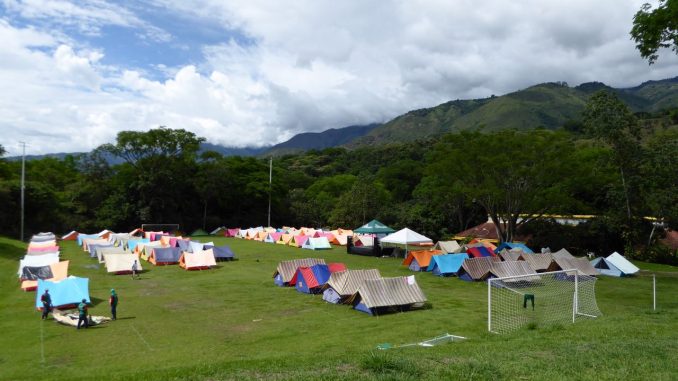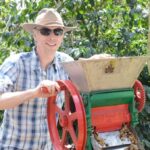
Antioquia’s innovative New Generation Coffee Camp will be extended!
Earlier this summer, I had the chance to attend the Third New Generation Coffee Camp in Antioquia, Colombia. The camp brings 1,000 young coffee farmers (aged 20-30) together for three days of education, coffee exploration, and community building.

Held on the grounds of an expansive water park outsides of MedellÃn, Antioquia’s capital and largest city, the camp offers young coffee farmers a chance to improve the quality of their coffees by learning about processing methods, fermentation, and how to cup, but it also gives campers a chance to socialize with other young coffee farmers. They also learn about how to promote their farms by building brand identity, using social media, and understanding what happens to coffee after it leaves the farm (ie. the work of exporters, importers, roasters, and more.) They also get hands-on lessons in barista skills.

The camp was an inspiring and fun event to attend, and I personally thought it was a model that should be expanded on and continued throughout Colombia. However, it was operating on a three-year budget, and as it was a piece of Governor Sergio Fajardo’s ambitious agenda to improve education and social services within Antioquia, and as he is in the final year of his position, it was not clear if the state assembly would authorize the funding to continue the program.

I believe the camp is an important piece to address a pressing problem in Colombia, and it’s a major challenge too for not just Antioquia, or Colombia, but for all of us who love coffee. Throughout the world, young people are leaving rural areas. They’re heading to the cities for what they see as better, or perhaps the only, options for the future. This devastates not just coffee farms, when no one remains to do the demanding work, but also the communities that depend on income from the farms. I wrote about this in an earlier blog post here. But the bottom line is this: the average age of a coffee farmer in Colombia is 55. In Antioquia, it’s 57!

So camp is a great way to show young people that not only is there a future for them, and their communities, through coffee, but specifically specialty coffee can increase their earnings, build strong relationships, and make farming a truly sustainable future. I wrote about my experience at the camp in our most recent issue (August + September 2015). You can read the story online here.
It was then with great satisfaction last week when I received an email from my contact in Antioquia letting me know that the state assembly had just voted to extend funding for camp and the other projects of Antioquia: Origen de Cafés Especiales! That means not only will there be an Antioquia’s Best Cup competition next year but also another year of camp! Hopefully too the success of the efforts by Antioquia: Origen de Cafés Especiales will be noticed and replicated by other regions in Colombia and even around the world. We simply have to have more support of young coffee farmers, because without new people becoming coffee farmers today, we won’t have any coffee tomorrow.

